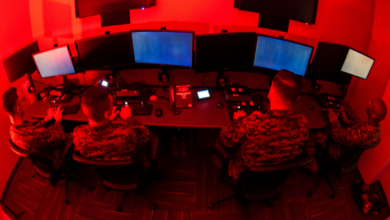Evolving Security Operations With AI

AI is transforming the way we do things and accelerating the evolution of security operations.
Cybersecurity threats evolve rapidly. The application of Artificial Intelligence in security operations is becoming not just beneficial but essential. The question organizations need to ask themselves is, “How can AI transform security operations?” We need to find ways to leverage its strengths to improve security while accounting for its weaknesses and avoiding unnecessary pitfalls.
I spoke with Matt McKeever, CTO of Cloud Engineering at LexisNexis. He underscored that ‘the success of AI in security operations hinges on the quality of data and the speed at which teams can respond to threats.”
Adopting AI In Security Operations
At the ReliaQuest Exponent user conference last month, Joe Partlow, CTO of ReliaQuest, emphasized the critical role of AI in evolving security operations. AI’s integration into cybersecurity is not just enhancing existing capabilities but also innovating how security challenges are approached and solved.
Automation through AI allows for quicker responses and more effective threat management, while AI-driven analytics provide deeper insights into security data, enhancing visibility across diverse and complex environments.
McKeever elaborated that AI can take over the grunt work of filtering through logs and writing detection rules, effectively promoting entry-level analysts to more advanced roles where they can focus on critical decision-making.
Strategic Innovations In Security Operations
Partlow noted that the evolution of cybersecurity tools involves both strategic innovation and active collaboration with industry peers. This dual approach helps in fine-tuning AI applications to meet practical security needs and ensures that the solutions developed are robust and comprehensive.
For example, GreyMatter, ReliaQuest’s technology-agnostic security operations platform, uses AI to perform functions ranging from sentiment analysis for identifying malicious communications to automating ticket responses for operational tasks, significantly reducing the workload on security analysts.
One of the key challenges in cybersecurity is increasing visibility across complex IT and OT environments. Partlow discussed initiatives aimed at closing visibility gaps that often leave organizations vulnerable to attacks. By leveraging AI, ReliaQuest enhances the detection capabilities and broadens the monitoring scope, which is crucial for protecting diverse digital landscapes.
Moreover, automation has been a game-changer in handling repetitive and voluminous tasks that traditionally consumed much of the analysts’ time. AI-driven automation not only speeds up these processes but also introduces accuracy and consistency, allowing humans to focus on more strategic security decisions.
From Traditional SIEM To AI-Augmented Systems
The transition from traditional Security Information Event Management (SIEM) systems to AI-augmented solutions marks a significant shift in the cybersecurity industry. Partlow explained that the value of AI in security does not lie solely in the models themselves but in how these models can be used to interpret and utilize data effectively. This shift emphasizes the importance of data integrity and trust, as the output of AI tools is only as good as the data input.
Practical Applications And Future Directions
With the increasing adoption of AI, new cybersecurity risks emerge, including the automation of attacks and the rapid development of exploits. Partlow highlighted the importance of both offensive and defensive testing of AI models to ensure robust security postures against evolving threats. He also demonstrated AI capabilities like deepfake creation, underscoring the potential for misuse and the need for advanced detection techniques.
Discussing practical applications, Partlow detailed how AI is used in improving inventory management, where dynamic adjustments to asset monitoring help reduce noise and enhance the focus on critical alerts. Furthermore, he illustrated how AI streamlines the creation of phishing detection rules and the generation of security alerts, which are more precise and context-aware due to AI’s ability to analyze vast amounts of data quickly.
Drawing parallels to the legal field, McKeever noted that just as AI can identify and quickly summarize relevant legal cases, it can also pinpoint critical security alerts, streamlining the workload for human analysts.
Looking towards the future, Partlow expressed enthusiasm about the potential for real-time, dynamic rule creation and the integration of language translation in security workflows. These advancements would allow for even faster and more adaptive responses to security threats.
Shaping The Future Of Security Operations
Security professionals should be encouraged to provide feedback and share their experiences, which are vital for the continuous improvement of AI platforms in cybersecurity. We need to stress the significance of collaboration and feedback in driving innovation, ensuring that AI tools not only meet the current security demands but are also prepared to tackle future challenges.
AI will play—and is playing—a crucial role in evolving security operations. By enhancing visibility, automating processes, and leveraging collaborative innovation, AI is setting new standards in the cybersecurity field, promising a more secure and efficient approach to tackling digital threats.



